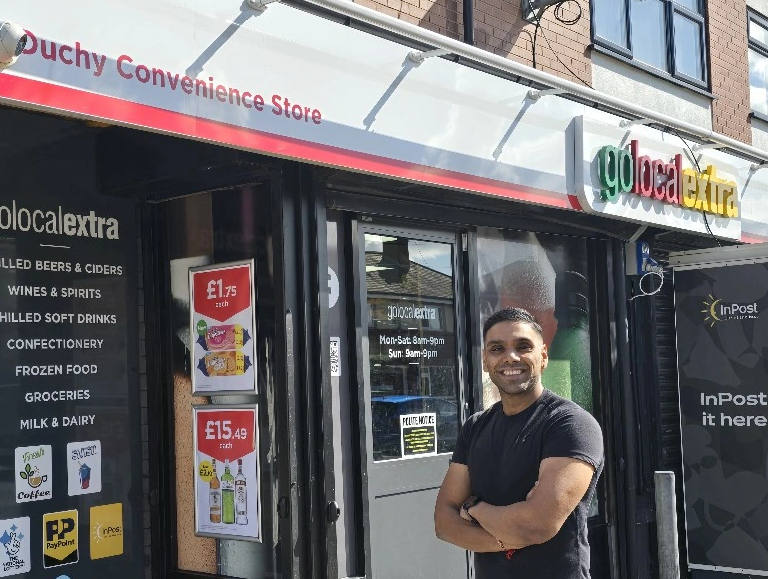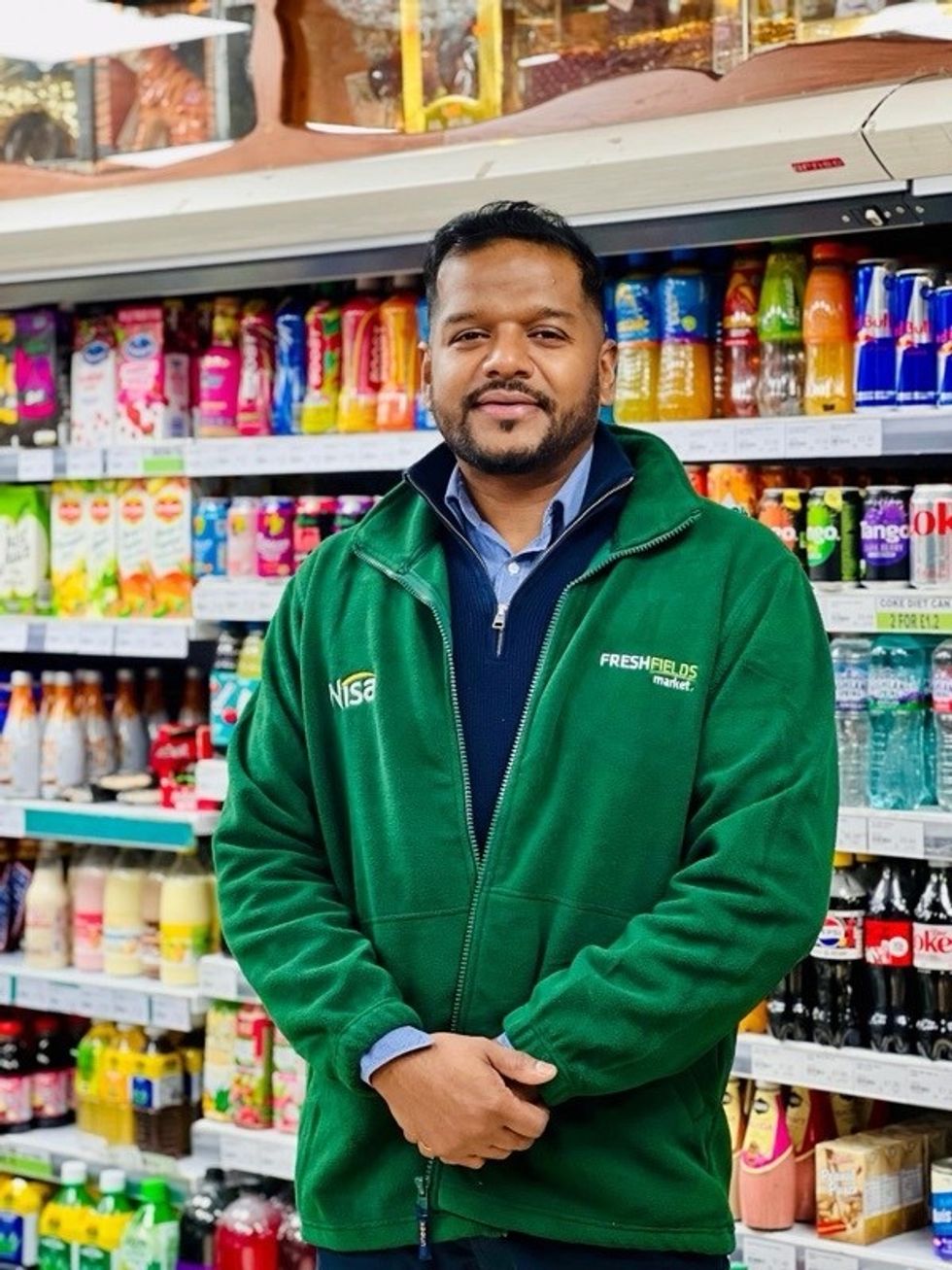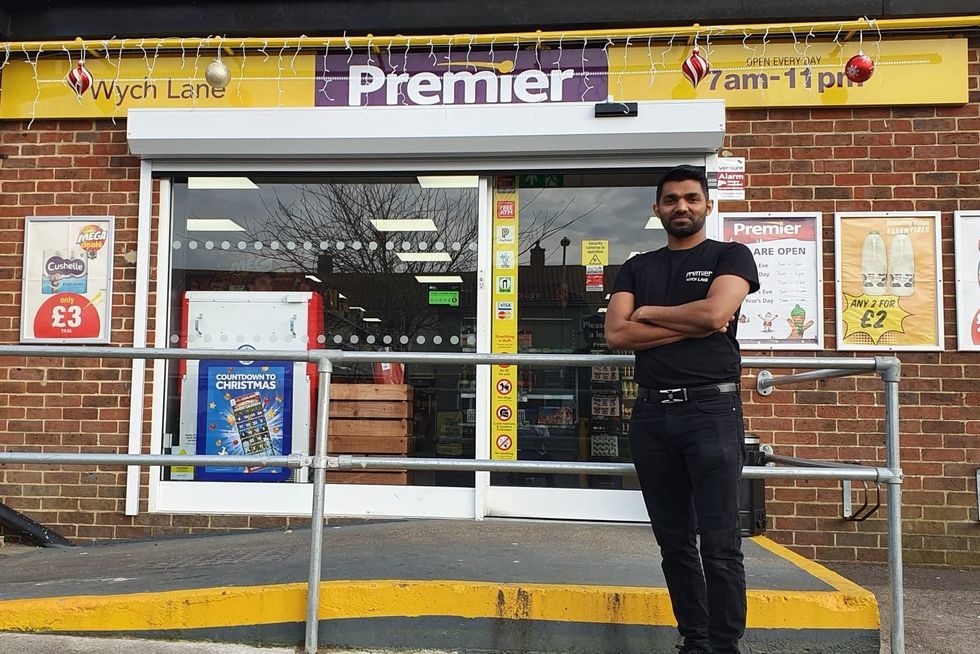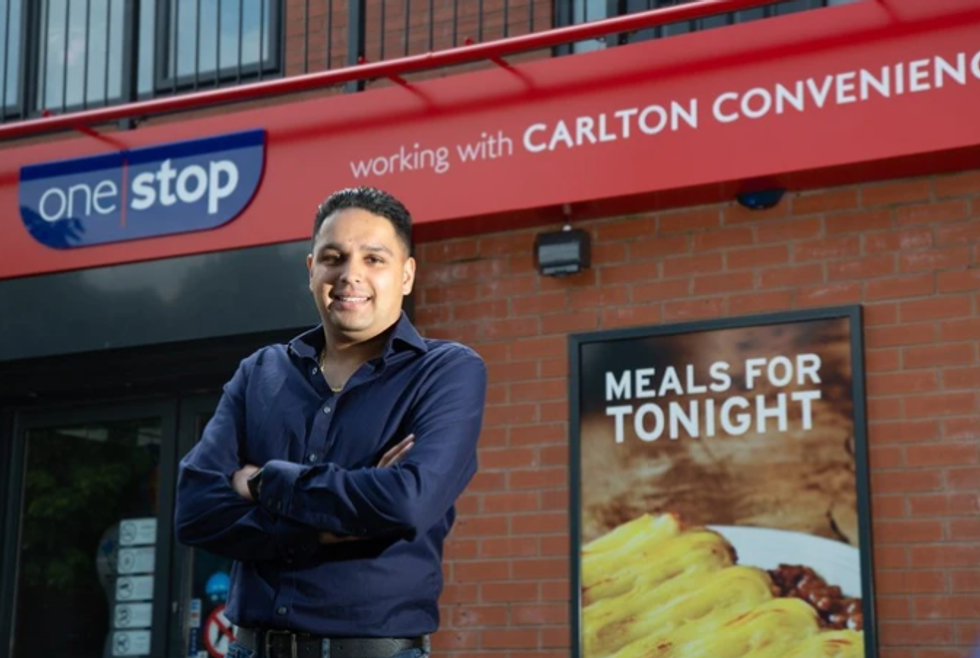Running a convenience store in Britain rarely ends when the shutters roll down. Be it keeping an eye on CCTV or answering supplier calls, for independent convenience retailers, vacations are rare and even when they occur, it is usually more of a balancing act rather than a welcome break.
For thousands of independents, holidays are not just about sunshine and rest; rather, they are a litmus test of trust in staff, systems, and the communities they serve.
Asian Trader checked in to find out how indies unwind. It turns out only a few manage to go completely off-grid, but most admit they can’t resist peeking.
Salford-based retailer Amit Patel, who has run his family’s store Duchy Stores since his teens, knows the drill.
“I find it hard to switch off completely,” he told Asian Trader.
“Even 1,000 miles away, I still log onto the CCTV system and have a quick glance. We’ve got a WhatsApp group, so we have a good idea of what’s happening back at the shop.”
For Patel, planning a break is like plotting a small military operation, weighing staff cover, checking how busy the calendar looks, and ensuring there’s a point of contact if things go wrong.
“We’d rather wind down in one spot rather than have the effort of tours or excursions. I know sitting a thousand miles away, I won’t be able to do much but even then, I am happy keeping an eye on what is happening than rather going completely off the grid.”
Technology, he said, is the unsung hero of modern retailer holidays. And Patel has a very good reason to be thankful for it.

For being a child of a retailer-couple, he never got to enjoy a single vacation as a whole family.
“When we were younger it was either Dad or Mum who took us (my brother, sister and I) away, but never together since one of them had to stay back to take care of the store.
“In fact, I cannot recall even a single family vacation that we had taken together to this day, which is kind of sad now that I think about it,” he said. “But that was their time; they had no other option.”
Patel’s reflection isn’t an isolated one.
Local convenience stores like these are extensions of households, which makes all-family holidays especially hard.
Generational shifts in many Asian-owned independents mean adult children often work side by side with parents. In many family-run stores, children spend their summers stacking shelves and manning the till.
Today, technology has changed the scenario by enabling remote control and connectivity, yet vacations for most retailers remain rare.
For newbies like retailer Vidur Pandya, it is still a luxury to take an extended break.

“As both my father and I are involved in the business, it’s either me or him who can go on holiday. This makes taking family holiday tricky.
“This mainly comes down to staffing and operations as we are still new in the business. One key aspect, I have now realised, is hiring a store manager to whom one can hand over the business while on a break.”
Considering that Pandya’s Kislingbury Village Store is the only one in the entire village, not opening up for a couple of days has wider repercussion on the community – hence it is never an option.
“I have been in business for 3.5 years so very early in building the business. I am still training employees to be independent which of course takes a while.”
On whichever days Pandya had managed to get away, he still found himself working remotely.
“When on a rare holiday, it’s a blended approach where I will respond to messages and calls when I’m free. But I still tend to place orders so that staff can do the day-to-day running of the store.
“Also, preparing the store for the holiday is key, for example we will stock up on most popular ambient lines to avoid big deliveries when I am away to make it easier for staff to focus on customer service,” Pandya told Asian Trader.
Cost of a break
Some retailers have not taken a vacation for a long time because they fear it will mean a loss of business.
For independent retailer Christine Hope, the decision to step away is brutally tied to numbers. She runs Hope of Longtown in a village in Hereford, a lifeline for the community as the village depends on the store for the essentials.
“Time away from the business has been vastly reduced to reduce business debt created by numerous factors,” she says frankly.
“Right now, I am focused at break-even, followed by reinvesting. A holiday cannot replace the sanity of profit.”
Her statement captures the dilemma many independents quietly live with: when margins are wafer-thin, leisure is the first luxury to go.

However, she is now determined to figure out a way to draw a boundary soon.
“I know it is not sustainable long term. When this happens, I rarely take work home to provide some home-life balance and bring back some sanity,” she revealed.
It’s a reminder that for many shopkeepers, the most meaningful holiday might simply be an uninterrupted evening at home.
The Local Shop Report 2025, published by ACS, captures this picture.
About 19 per cent of retailers take no holiday ever in the entire year, states the report. It also mentions that some shop owners (five per cent) end up working more than 70 hours per week.
The buzz beginning is that Labour is set to change Sunday trading laws to appease big supermarkets in the wake of their uproar over higher tax bills, and let them open for longer hours. If this goes through, it is likely to have further ripple effects on smaller-format convenience stores, hampering their Sunday evening rush.
But when the spending is low and costs are high, each hour of trade counts.
Always an eye on the ball
And yet, despite the relentless hours, retailers remain deeply embedded in their communities with 80 per cent of independents known to engage in some form of community activity in the past year.

When it comes to the convenience sector, the cultural element is also strong. For many families, the store is not just a job but a legacy, something built over decades of long hours and personal sacrifice. To leave it unattended feels like neglecting both business and family duty.
Croydon-based retailer Benedict Selvaratnam admits he does not get away as often as he would like to."Running the store, e-commerce, and community projects keeps the calendar pretty full. When I do carve out time, I try to make it count. I usually catch short breaks rather than long escapes.
“On holiday I’m not completely MIA. I always check in, make sure things are running smoothly, but I have eventually learnt not to micro-manage.
“A good team makes that possible. My way of unwinding is simple: family, good food, and time outdoors. That balance clears the head and keeps me ready for the next big push,” he told Asian Trader.
For some, like veteran retailer Atul Sodha, unwinding means partly detaching from the trade owing to the support system that they have created.
At the time of this conversation with Asian Trader, Sodha had just returned from Kenya where he had gone for a family wedding with his mother. It had been four years since his previous holiday.

“I used to take vacations as often as possible,” he says. “Even when I am not on holiday, I am away at awards or networking events or brand activities, it is my team that takes care of everything.
“I have not taken a long proper vacation in four years due to personal reasons. But it was because of this all-empowered and efficient staff that I was able to balance work, family responsibilities and networking easily.”
Elsewhere in Midlands, retailer Imtiyaz Mamode, who runs a busy store in Hampshire, admits he can never fully let it go.
Mamode said, “On vacations, I don’t completely switch off, I still work remotely, place orders and stay in touch with suppliers. But I also make sure to spend time with family and enjoy myself.
“I usually take one proper vacation a year, and most of the time it’s about visiting family and exploring food. So it’s a bit of a balance. Work doesn’t stop, but I still manage to recharge.”

Balancing act
And then there are some retailers who have built super-efficient systems that allow them to step back completely.
Glasgow-based retailer Girish Jeeva has a solid support system in place, which ensures that he is not involved in day-to-day operations of either of his two stores.
In fact, the operations part of the store is taken care of by his trusted employee, a common scenario in independent convenience but with a rare twist.
“I don’t do anything anymore since Sneha takes care of day-to-day operations and that, too, remotely from India.
“So, in a way, this remains the same whether I am here in Glasgow or on holiday.”
“But yes, retailing is a 24-hour, 365-days job. Vacations are always unplanned, just whenever we feel like it – yet that happens not very often,” Jeeva admitted.
Such a sentiment echoes across the industry. Even when technology and trusted staff take the wheel, retailers remain tethered, anxious, unsure.
And then there are a rare few who are able to go completely off the grid and relax.
Manchester-based retailer Priyesh Vekaria, one of the leading award winners at Asian Trader Awards 2024, feels fortunate to have a trusted and experienced team due to which he can step away knowing everything is in safe hands.
“That freedom allows me to fully recharge and come back with fresh energy and perspective. “Every six weeks or so, I try to take a couple of days for a short break, and every four months I make sure to plan a week away.
"I especially value the quality time with my younger children, those moments are what keep me grounded and remind me why I work so hard in the first place.”
“In the end, balance is everything. Whether it is family, friends or colleagues, those relationships give me the energy and clarity I need to thrive both at work and at home,” he said.
Echoing his brother Patel's thoughts earlier, Vekaria added, "There were so many times when either Mum or Dad had to stay behind to look after the store.
"Sadly, with Dad passing in 2021, we lost the chance to ever have that holiday as a complete family. That experience has shaped me and is one of the reasons I run my business the way I do today."

Convenience stores might often be family-run and modest in size, yet collectively they generate £48.8bn in sales annually, support 443,000 jobs, and contribute over £10.5bn in GVA to the economy.
That scale means holidays are never just personal decisions. When a retailer steps away, he is not always in a position to put down the shutters.
This explains why many owners like Patel and Pandya plan holidays with military precision and why some, like Hope, choose not to take them at all.
Clearly, for British convenience store owners, holidays may never mean complete escape, but they do mean renewal enough to return and keep the doors open for the millions who rely on them.
Clearly, for independent retailers, the difference between a restless break and real renewal comes down to a team strong enough to keep the tills ringing while they recharge.



